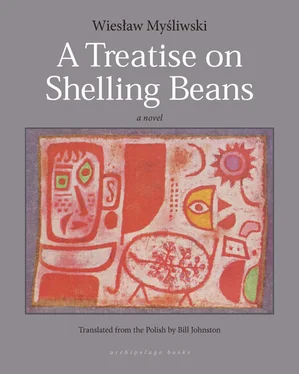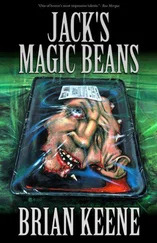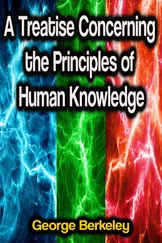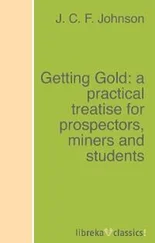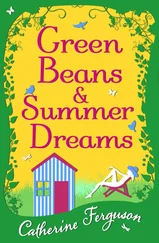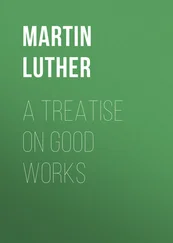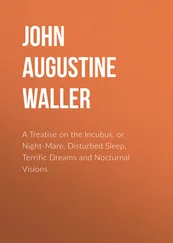And would you believe it, within a month I’d already begun to feel better, it hurt a lot less, I started to put on weight. In four months I was already back to my regular weight. I could eat anything, I even had a glass of alcohol from time to time, with no ill effects. I drank the herbs for a whole year, then after that only in spring and fall. And since then I’ve been fine.
Would you like to write them down? I’d just need to find you a slip of paper and something to write with. Well, maybe later. I remember what they were, I’ve not forgotten. If only I could remember everything like that. Though could anyone live in such a way? Actually, I don’t think that sort of memory would be any more real.
No, my wife and I broke up for a different reason. I didn’t want to have children, as I mentioned, and she very much did. I liked children, I still do, as I said. But I didn’t want any of my own. Why not? I’ll leave it to you to figure out. Me, I might not tell you the truth. Do I regret it now? Maybe yes, maybe no. We broke up when I was already well again, I’d almost forgotten about being sick. Wives don’t leave you when you’re sick. Especially her, she’d never have left for a reason like that. True, for a long time I hadn’t let on I was ill. When she found out, she even said to me one time:
“I’ll leave you if you don’t get treatment.”
I didn’t want to worry her with my illness. I’d never presume to worry anyone with my own ill health, especially my wife. It hurt and that was all there was to it. You can get used to any pain if it hurts constantly. Like back then in the cafe, it hurt, but I kept listening to the man. And maybe it was under the influence of the worsening pain in my right side, under the ribs, that I asked:
“Was he unwell?”
You should never ask questions based on your own pain, as I realized immediately.
“No,” he said. “He committed suicide.” He spoke calmly, you might say, but at the same time he lifted his cup to his lips even though it was empty. And he added: “It was years and years ago, but I still find it painful. More and more painful. So thank you for letting me buy you coffee.”
That I did not understand, let me tell you. We’d nodded to each other by mistake, and here he was thanking me. Out of the blue he asked:
“What year were you born in? That’s what I thought. I was more or less your age when my father came back from the war. Luckily, or unluckily, he wasn’t taken prisoner. He was in hiding for some time, so he didn’t come back right away. We didn’t think we’d see him again. Then one day, unexpectedly, he showed up, dressed in civilian clothing, unshaven, gaunt. You’d think all the more that there couldn’t be anything more joyful. That’s what people usually think when someone comes back from the war … And rightly so. Any return from the war has joy written into its very nature. Unless it’s someone coming back to an empty house, to ruins. Think about what a return from the war always meant. Someone came back, someone else didn’t, that alone is a measure of our experience. Someone cames back, someone else doesn’t — that pretty much sums up our own predicament. As if human fate were forever vacillating between joy and pain. If you look at war from such an angle, it might seem to be exclusively for homecomings of that kind that wars are fought. As if there were no greater measure of a person’s happiness. Or greater pain when someone doesn’t come back. Coming back from the war might be the clearest proof that life can triumph over death. Yet it’s a triumph for which we need constant evidence. Because it’s like a return from another world. So even when someone comes back a cripple, armless, legless, eyeless, the very nature of the situation means we should greet them with joy. They bring joy across the threshold of the house along with their saved life.
“Too bad we didn’t even have time to express our joy at father’s return. As he walked in he glanced at us with cold eyes. Then, when mother burst into tears and tried to throw herself into his arms, he held her back. The same went for me and my little brother, when we hugged him he moved us away from him. He at least ought to have picked my brother up and said, My, how you’ve grown, son.
“I mean, that’s one of the basic principles of homecoming. Especially since when he went to war, my brother had just been learning to walk. He asked mother for a glass of water. As he drank it we both looked at him almost greedily, as if it was us who were thirsty. His Adam’s apple bobbed up and down in this funny way. To give vent to the joy he’d dampened in us, we laughed at his Adam’s apple. Mother made the best of our laughter, she evidently had a premonition, and she said:
“ ‘See how happy the boys are.’
“He didn’t say a thing. He just looked at us with those cold eyes, and the laughter died inside us. He handed the glass back to mother and walked into the living room without a word. He dropped heavily into an armchair. Mother started to ask him if he wasn’t tired, maybe he should lie down, or perhaps he’d like to take a bath and change his clothes. She had everything ready. All his shirts and pajamas were washed and ironed, his suits were cleaned. She’d borrowed a razor and had the neighbor hone it, he could shave. She’d even managed to get hold of some shaving cream. Or maybe he’d rather have something to eat first. There were a few eggs, she’d gotten hold of them by some miracle. Would he like them fried, or would he prefer soft-boiled?
“But nothing she said had any effect on those cold eyes. He sat there without a word, lost somewhere deep inside himself. Perhaps he didn’t believe he was home, that he’d come back. Mother was helpless, she didn’t know what to do or say anymore. She smiled and cried. She kept hurrying out to get something as if she’d just remembered about it, then she came back empty-handed. I felt sorry for her. I thought to myself, I’ll go and play something for him on the piano, maybe that’ll convince him that he’s home, that he’s back.
“Whenever he used to hear me playing, however busy he was he’d always come into the living room, sit down and listen. He never asked me to play any particular piece, he just listened. I knew he wanted me to carry out his own unfulfilled ambition. He’d wanted to be a pianist, apparently he had ability, but it all came to nothing after his father, my grandfather, died in the previous war. Every generation has to have its war, as you see.”
I didn’t know if he expected me to agree, or to offer a different opinion, because he broke off and became pensive, he was gazing off somewhere. Though I hadn’t caused his outpouring in any way, I somehow felt as if I’d intruded into his life. And it was making me more and more uncomfortable. I decided it was time to look at my watch and say, I’m really sorry but I ought to be at my rehearsal by now, which as it happened was true. Till next time maybe if you feel like it. The next coffee’s on me. We can even meet here, in this cafe, tomorrow, the day after? At the same time? Here’s my card.
He spoke before I’d had a chance to say anything:
“What’s your instrument?”
I was shocked, because I hadn’t yet told him I was supposed to be at rehearsal.
“The saxophone,” I said. I was about to seize the opportunity to say I had to be getting to my practice, since I was running late as it was, I was very sorry.
With what seemed to me a hint of scorn he repeated:
“The saxophone.” And again: “The saxophone.” He drifted into thought once again. “It makes no difference what a person plays. What’s unfulfilled remains unfulfilled. So I had good reason to think that if I played for him … and for our sake too. Because we also found it hard to believe he was with us, he was back. Mother had cried her eyes out all through the war. All through the war we’d prayed for him. Hope faded as the war dragged on. His letters came less and less frequently, then in the end they stopped altogether. Mother wrote him, he didn’t reply. So she started getting us used to the idea that we’d have to live without a father. The war ended and he still hadn’t come home, so our hopes were almost extinguished. And now, out of the blue here he was, he’d returned. You must admit that in such instances it’s easier to come to terms with the fact that someone will never come back than to believe that he’s here, he’s returned. Tears may be more in place at those moments than joy. Tears seem more appropriate in a situation where you don’t know what to do with yourself. But we kept our tears in check, and we couldn’t imagine tears appearing in those cold eyes of his. If there weren’t to be any tears, music was the only thing. When hearts are bursting, music is the only thing.
Читать дальше
